从顶着科技光环到沦为环保灾难,塑料成为“人类史上最糟糕的发明”仅用了100多年。从陆地到海洋,时间不仅没有“见证”塑料废弃物的消失,反而“拉近”了其与人类的距离。海洋微塑料指粒径小于5mm的塑料碎片和颗粒,被形象地称为“海洋中的PM2.5”[1]。目前,海洋微塑料污染问题已在全球范围内引起普遍关注,并被联合国环境规划署列为“全球十大新兴环境问题”之一。
From the high technology to environmental disaster, plastic has become “the worst invention in human history” in just over 100 years. From the land to the sea, time has not “witnessed” the disappearance of plastic waste and “brought” it closer to humans instead. Marine microplastics refers to plastic fragments and particles with a size of less than 5mm, which is imaginatively called “PM2.5” in the ocean. At present, the problem of marine microplastic pollution has attracted widespread attention worldwide and has been listed as one of the “Top Ten Global Emerging Environmental Issues” by the United Nations Environment Programme.
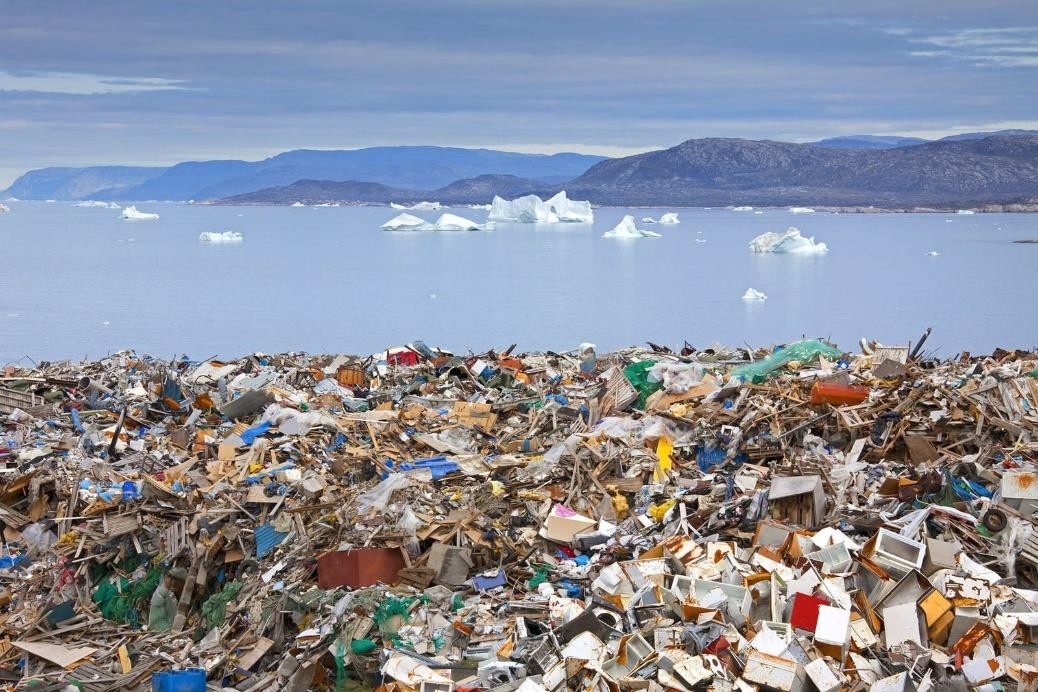
海洋微塑料的来源
Sources of marine microplastics
海洋微塑料的来源主要分两类:一类是初生微塑料,指由人工制造所得,可直接作为产品或原料使用的塑料微颗粒,如牙膏、磨砂洗面奶等日用品中含有一种名叫“柔珠”的添加剂等;另一类是次生微塑料,指由大型塑料垃圾经过物理、化学和生物过程造成分裂和体积减小而成的塑料颗粒[2]。无论初生微塑料还是次生微塑料,它们的形成都离不开塑料制品。据统计,全球每年产生的塑料垃圾约3亿吨。试想,如此多的塑料垃圾又会促使多少海洋微塑料的出现?
The sources of marine microplastics are mainly divided into two categories: one is primary microplastics which refers to plastic microparticles made manually and can be used directly as products or raw materials, such as toothpaste, facial scrub and other daily products containing an additive called “microbead”; the other is secondary microplastics, which refers to plastic particles made from large plastic waste that has been split and reduced in size by physical, chemical and biological processes. Whether primary or secondary microplastics, their formation is inseparable from plastic products. According to statistics, about 300 million tons of plastic waste are generated globally each year. Imagine how much of this plastic waste contributes to the emergence of marine microplastics?
塑料垃圾进入海洋的途径主要分为陆地、海洋和大气沉降。其中陆源污染为海洋塑料垃圾的主要来源,包括污水处理、塑料废物处理不当和海岸休闲用品随意丢弃等。此外,人类在进行船舶运输、海洋平台作业以及海水养殖、捕捞等海上活动时也会排放向海洋排放塑料垃圾。
The plastic waste in the ocean are mainly from land, sea and atmospheric deposition. Land-based pollution is the main source of marine plastic litter, including sewage disposal, improper disposal of plastic waste and coastal recreational products discarded randomly. In addition, human beings also discharge plastic waste into the ocean when carrying out marine activities such as ship transportation, marine platform operations, and mariculture and fishing.
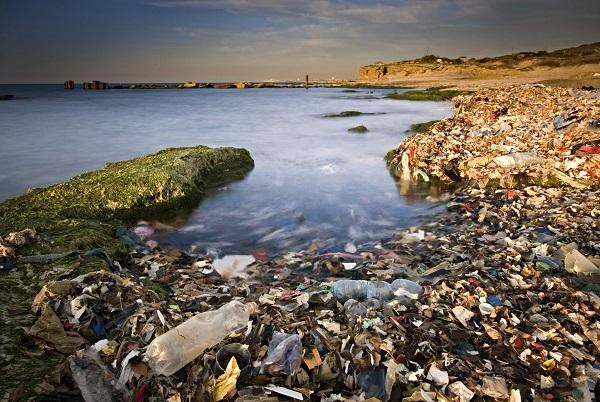
海洋微塑料的分布
Distribution of marine microplastics
海洋微塑料的存在感十足,不同来源的微塑料进入海洋,或悬浮在海水中,或沉积到海底,或融入沉积物内。现如今,从近岸海域到深远海域,从海水表层到海沟深处,从赤道地区到南北两极,海洋微塑料已无处不在。
Microplastics from different sources enter the ocean and either suspend in seawater, deposit to the seafloor, or incorporate into the sediment. Nowadays, marine microplastics have become ubiquitous from nearshore waters to deep waters, from the surface of seawater to the depths of trenches, and from equatorial regions to the North and South Poles.
由于大部分塑料垃圾通过河流进入海洋,因此在河流入海口微塑料的浓度较高。与此同时,在靠近人类活动的海滩、港口、养殖区等近岸海域微塑料也广泛分布。据研究海洋微塑料污染程度与周边地区人口密度和经济发展强度呈现显著的正相关性[3]。有专家称,如果任其蔓延的话,恐怕蚌壳里的珍珠都会变成塑料球。
Since most plastic waste enters the ocean through rivers, the concentration of microplastics atestuaries is high. The concentration of microplastics at river mouths is high. At the same time, microplastics are also widely distributed in near-shore waters such as beaches, harbors, and aquaculture areas where there are many human activities. According to a study, the degree of marine microplastic pollution shows a significant positive correlation with the population density and economic development intensity of the surrounding areas Some experts say that if the pollution is allowed to spread, all the pearls in the clam shells will turn into plastic balls.
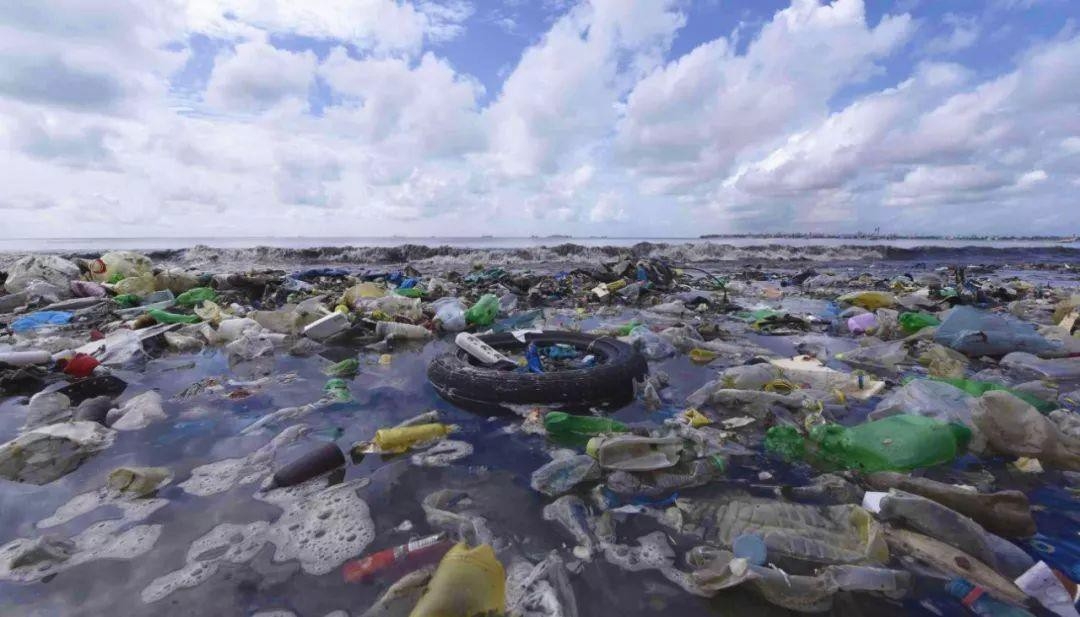
海洋微塑料的危害
Hazards of marine microplastics
海洋微塑料因其独特的性质、庞大的数量和广泛的来源,产生的危害性远超普通尺寸的海洋塑料垃圾。海洋微塑料在海洋环境中难以降解,易持久性吸附有机污染物、重金属离子及微生物,可通过氧化应激、神经损伤、内分泌干扰以及免疫损伤等作用机制对海洋生物体产生一定的毒性效应。浮游动物和鱼类摄食微塑料会随着食物链进行传递累积,使整个海洋生态系统瘫痪,甚至影响人类健康。
Marine microplastics, due to their unique nature, large quantity and wide range of sources, produce hazards that far exceed those of regular-sized marine plastic litter. Marine microplastics are difficult to degrade in the marine environment and can continuously adsorb organic pollutants, heavy metal ions and microorganisms, which can have certain toxic effects on marine organisms through oxidative stress, neurological damage, endocrine disruption and immune damage. Microplastic ingestion by zooplankton and fish can accumulate along the food chain, paralyzing the entire marine ecosystem and even affecting human health.
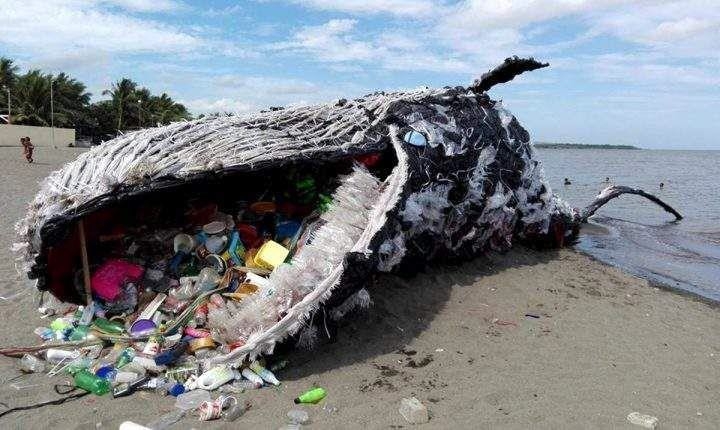
海洋微塑料防治措施
Measures to prevent and control marine microplastics
1.政府要加强政策法规的制定和监管力度。如禁止塑料微珠在化妆品和个人护理品中的添加;对垃圾进行分类,尤其要加强对塑料废品的回收利用和集中处理;限制公众对塑料制品的使用范围和数量,海南省政府颁布的“禁塑令”正是一个良好的开端。
1. The government should strengthen the formulation of policies and regulations. For example, we should ban the addition of plastic microbeads in cosmetics and personal care products, separate garbage and especially strengthen the recycling and centralized treatment of plastic waste; limit the scope and quantity of plastic products used by the public. The “disposable plastic bags ban” promulgated by the Hainan government is a good start.
2.科研工作者应加快研发可快速完全降解的新型塑料以替代目前普遍使用的石油基塑料;或进一步发展能够完全降解塑料的处理工艺等。
2. Researchers should speed up the research and development of new types of plastics that can be completely degraded quickly to replace the petroleum-based plastics currently in common use, or further develop the treatment process that can completely degrade plastics, etc.
3.公民应加强对海洋微塑料危害性的认识,提高环境保护意识,主动并积极减少对塑料制品的使用,尤其是对一次性塑料制品的使用。
3. Citizens should enhance their awareness of the hazards of marine microplastics, raise their awareness of environmental protection, and actively reduce the use of plastic products, especially the disposable plastic products.
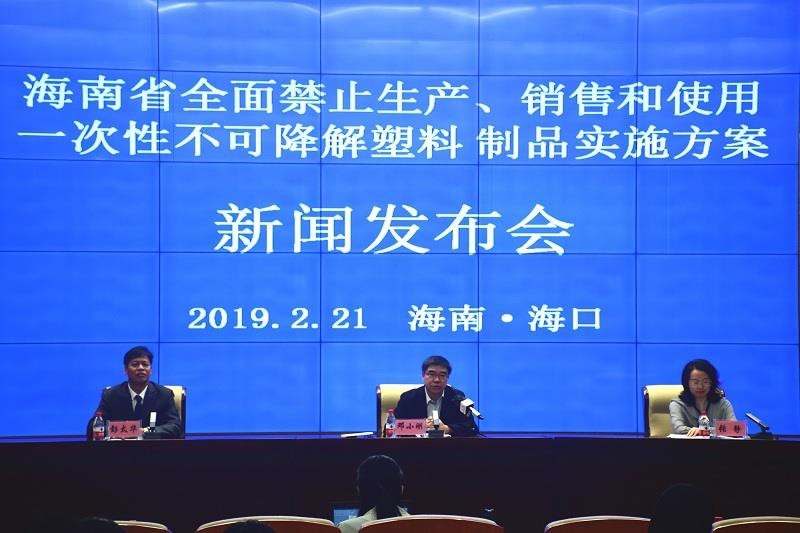
参考文献
[1] Thompson R C, Russell A E, et al.Lost at sea: where is all the plastic?J. Science, 2004, 304(5672), 838.
[2]Jambeck J R, Law K R, et al, Plastic waste inputs from land into the ocean[J].Science, 2015, 347(6223),768-771.
[3]陈斌.海洋环境微塑料生态效应影响研究[J].环境与发展, 2018, 30(03), 33-37.
References:
[1]Thompson R C, Russell A E, et al. Lost at sea: where is all the plastic?J. Science, 2004, 304(5672), 838.
[2]Jambeck J R, Law K R, et al, Plastic waste inputs from land into the ocean[J].Science, 2015, 347(6223),768-771.
[3]Chen Bin.Study on the ecological effect of marine micro plastics[J].Environment and Development, 2018, 30(03), 33-37.